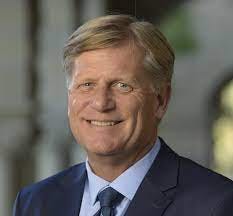Notes
I Thought I Had Read All the Books . . . .
Democratic Transformation and Transition – How to Describe It.
ADVANCING DEMOCRACY ABROAD, by Michael A. McFaul (2010, Rowman and Littlefield, 284 pages)
In this political science book as published by Russian ambassador, college professor and White House advisor Michael McFaul, the value of our democracy in the United States is not strictly disparaged nor questioned as to theoretical or practical decline as political books have a penchant to do these days, but it does examine at varying levels of detail the development and promotion of democracy in places, and the backlash against democracy (2010’s) by autocratic regimes. Americans have a long history of promoting democracy whether in their strict interests or not, and accompanying this since many decades ago has been a foreign aid and non – governmental organization cooperation that responds to famines, floods, quakes, international crises and conflicts and other disasters and promotes peace and liberty at the same time. The Peace Corps and National Endowment for Democracy are examples of this, as is the newer International Republican Institute. There are innumerable non – governmental organizations out there attempting to influence and even to conduct foreign policy as sponsored by the former soviet union, why shouldn’t the States have a few? The book lists a number of these in the course of the narrative, and while starting with a critical view on the implementation of the Bush administration foreign policy, the text proceeds through that of the Obama administration and its conducting of U.S. foreign policy as adaptive in the mode and environment of political change. The details of this are captivating and as the Bush administration in its mission to advance freedom, in nation – building, and in seeding democracy in its development in different places in no small way experienced a backlash against democracy by the September 11, 2001 events; and was forced to change its international goals to those of national security and a Freedom Agenda that waned significantly by 2008. Mostly the Freedom Agenda, and you will have to read for the details of this, promoted democracy through press freedoms and promoted an electoral system of government as well. As a measure of the backlash against this, and not insignificant, was the 2006 assassination of the Russian journalist Anna Politkovskaya, apparently given her speaking out in the press and in the literature about destructive Kremlin policies on Chechnya and in the Caucasus.
McFaul makes a point in the book early on that autocratic regimes openly and reflexively reject the democratic agenda which essentially had the Bush administration correlating military force with its democratic political missions, and these along with the author’s finding that the promulgating of democracy in places is not always in American interests. Why is this, or why was it at the time? While those professing and promoting democracy issue a call to constitutional government, with a bicameral legislature and free elections, part politics and human rights; not everyone is on the side of Americans in this and their supposedly Wilsonian liberalism that engenders conflict with other polity given the assessment that this policy by the U.S. is naïve, as are U.S. foreign aid and the Peace Corps, for instance. Balancing this are U.S. administration political realists who promote democratization at the same time, and through anti – terrorist movements, anti – communism and the like. While there is no one process nor recipe to effectively promote democratic change in non – democratic societies, this is an extremely important book to read given democratization on a systemic level that entails engagement abroad, influences for institutional change, non – governmental organizations in action, and an understanding of and conduct of liberal politics and liberal political parties.
It is unfortunate and was unforeseeable at the time that democratization everywhere would be shocked and abated, at least for a while, by the events of September 11, and the resulting “global war on terror”. During the 1990’s, U.S. adversary regimes such as the People’s Republic of China and the U.S.S.R. (later the Russian Federation) experienced democratic, or quasi – democratic, influences and changes, and this gave hope to those everywhere engaged in and creating a challenge by democratization despite democracy’s imperfections. Given the September 11 events, this all changed to have democratization in parallel and on a level with domestic U.S. security, adaptation of democracy to a world influenced in part by terror, and a political liberalism that called for nation – building and electoral politics in ways that were competitive and meaningful on the level of entire societies. This fascinating book is an account in summary of these factors and influences in the way democratization in the modern world is reified in continuous fashion in the Western Hemisphere including Europe and in the role of democratic trends and influences, and administration everywhere internationally.

Dive into your interests
We'll recommend top publications based on the topics you select.
